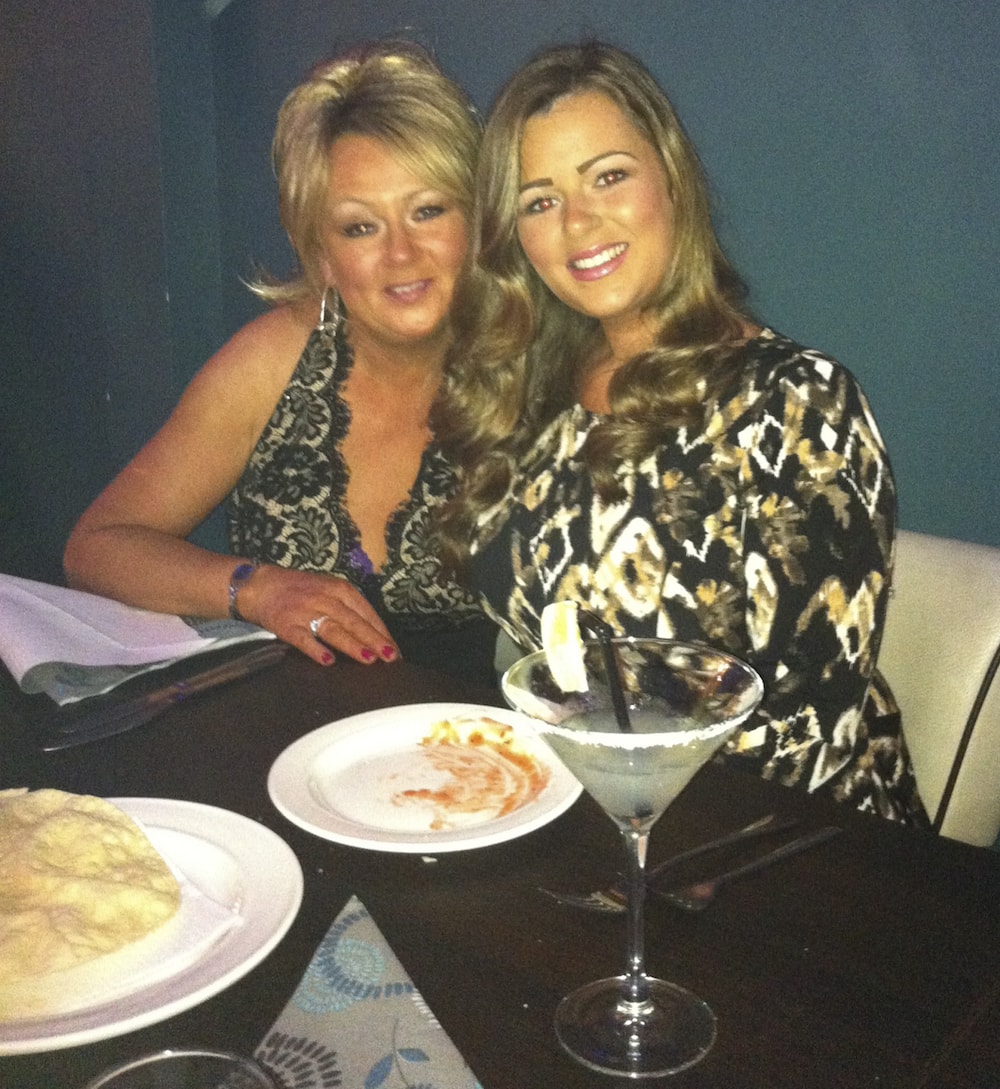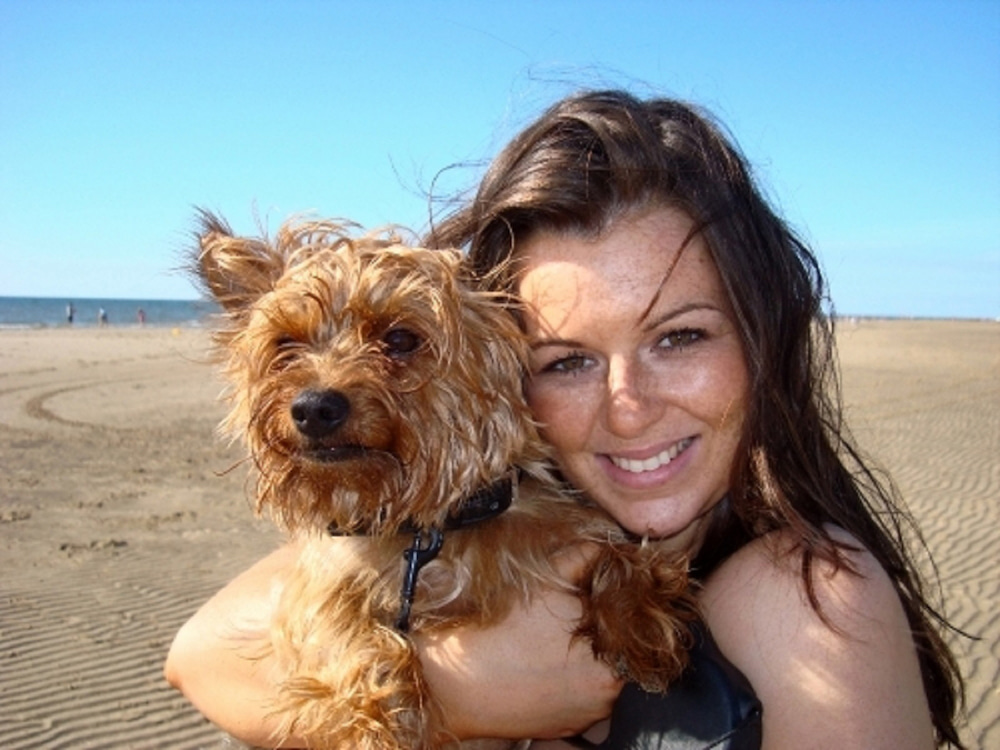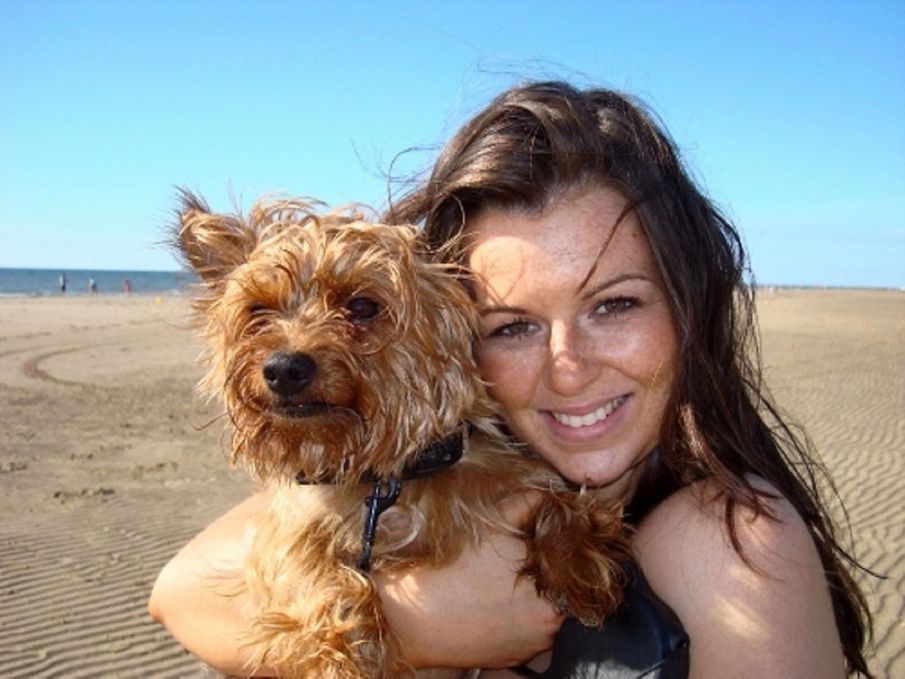Writer Lacey London refused to believe she had anxiety and depression. With loving support from her mum, she gained the strength to face her torment

Looking around the doctor’s waiting room, tears slipped down my cheeks as I desperately tried to hold it together. The rhythmic ticking of the clock caused my head to throb. How did I get here? How did the bubbly girl, that everyone knew and loved, crumble into a sad, frightened and extremely lonely person?
I’ve always been a worrier, but my real battle with anxiety and depression started around seven years ago. For no apparent reason, I started to deteriorate. I sat back and watched the person I was slowly disappear, until all that was left was an empty shell of a woman. A woman who had fallen deep into an anxiety-fuelled depression. My light had been switched off and I had absolutely no idea how to get it back.
At first, I refused to believe there was anything wrong. I tried to convince myself, and those around me, that the constant nausea, the dread in my stomach, and the loss of appetite was due to nothing more than a bad case of gastroenteritis. Deep down, however, I knew something wasn’t right. It just took me a lot longer to realise it. Trying to keep a smile on my face and “powering on through” was my way of dealing with it, but pretending I had things under control was the biggest lie I told myself.
My bed was the only place I felt safe, but also where I felt my worst. Watching the world go by from my bedroom window is a feeling I will never forget
Despite my efforts not to acknowledge it, the agonising fear that hit me the second I opened my eyes became stronger every day. What started as “feeling a little down” quickly escalated to a very dark place. I couldn’t eat. I couldn’t sleep. Even simple things like washing my hair seemed impossible. I just didn’t care enough to do anything anymore. Every ounce of happiness had evaporated, leaving me with nothing but a sense of emptiness. By this point, I couldn’t hide it anymore.
It felt big. Bigger than big. Bigger than anyone could or would ever understand. The harder I tried to fight it, the worse it became. In the end, I decided to let it take control. I gave up fighting and allowed the hollowness to consume me. Sometimes, I could almost see it chomping through my spirit and nibbling away at any glimmer of hope I dared to believe in. For days on end I would hide in my bed, cowering beneath the duvet in a desperate bid to block out the world. My bed was the only place I felt relatively safe, but ironically, it was also where I felt my worst. Watching the world go by from my bedroom window and wondering when I would be a part of it again is a feeling I will never forget.
When the doctor first mentioned anxiety and depression, I wanted to scream in frustration. I didn’t know whether I should laugh or cry. She just didn’t get it. I wasn’t mentally ill. I was physically ill. Surely a mental illness couldn’t cause the symptoms I was experiencing? The shakes, the sickness, the all-encompassing panic that gripped my body? I was adamant there was an underlying condition that was making me feel this way. I believed the doctor was trying to fob me off. I felt she was glossing over what I was saying with the dreaded “d” word.

After initially ignoring the doctor’s diagnosis, I spent weeks scouring the internet, desperate to prove her wrong. On the surface, I had absolutely nothing to be depressed about, so why had something gone so fundamentally wrong to make me feel this way? Why, is the one question I asked myself over and over again. It’s a question I still don’t have the answer to today. I tried to link it to my parents separating, my work or the stresses of everyday life, but I genuinely couldn’t feel a connection between them.
It took me a long time to accept that anxiety and depression were the causes of my torment. It also took me a long time to accept there is no quick-fix. There’s not an over-the-counter pill or a quick vaccination to stop the anxiety in its tracks. Discovering this dealt me another huge blow. Not only was I in a hellhole, I was stuck there and that was more frightening than the anxiety itself.
My mum was my secret weapon when it came to taking control of my anxiety. Being a sufferer herself, she recognised the symptoms long before anyone else did. Having someone who understood exactly what I was experiencing was invaluable. Because she had been through the same thing herself, she could relate to me on a deeper level than other people. She didn’t make me feel silly or pathetic during the times I would completely breakdown in the grips of a panic attack. She didn’t tire of my constant questions and need for reassurance that everything would turn out OK. She didn’t look at me the same way that other people did.
When the doctor first mentioned anxiety, I wanted to scream in frustration
Like many others with anxiety and depression, including my mum, I concealed my emotions behind a mask. Learning to remove the mask and admit that my mind needed help, and not my body, was the first step I took on the journey to taking back control of my life.
As strange as this may seem, I wouldn’t change that period of my life as I believe I am a better person for going through it. Feeling as though you want to pull the plug on your life isn’t something you forget in a hurry. Being so close to tapping out and pressing “game over” made me see the world in a new light. It enabled me to realise what is truly worth worrying about and what isn’t. Anxiety cascading into my life taught me a lot about matters of the mind and a lot about myself, as you never know how strong you truly are, until being strong is the only choice you have.
Over the years, I have slipped back into the dark world of anxiety and depression on a few occasions, but I believe my worst days are behind me. With each bout of anxiety, I handle it better than the last, and I can now snap myself out of a downward spiral, almost as quickly as I fall into it. I’ll probably always have the odd wobble, and there will probably be another time when anxiety takes me back to that awful place, but I live without fear as I know I can control it, if and when it happens.

My mental demons may have taken away a portion of my life that I will never get back, but they have led me to a better future. Overcoming anxiety gave me the confidence to take a leap of faith and follow my dreams of becoming a writer. The most pivotal point on my journey with anxiety came in the form of my latest release, Anxiety Girl. My aim was to show other sufferers that there is light at the of the tunnel, and that they’re not alone in their battle with mental health. If self-help techniques and cognitive behavioural therapy can help me to take back control of my life, then it might help you, too. Don’t be afraid to reach out and ask for help, don’t be afraid to speak up about how you really feel, and don’t be afraid of the judgement of others. It’s perfectly OK to admit that you’re not okay.


Comments